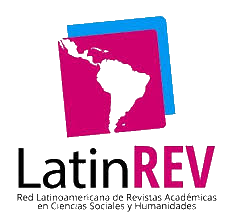About the Journal
Focus, aims and scope
Revista Latinoamericana de Trabajo y Trabajadores is a scholarly publication devoted to the history of labour, which aims to bring together research with diverse views and perspectives about and from Latin America. It draws upon a conceptualization of labour history in the long term (16th to 21st centuries), thus overcoming several dichotomies (such as the division between the studies of the ‘classic’ industrial and waged workers and those dedicated to slavery and other forms of coactive work) and exploring a variety of socio-economic systems, as well as the diverse non-evolutionary continuum of coactive labour and labour regimes that bring together informal and popular activities. Moreover, it explores labour precariousness from a perspective that recognizes that it is not only a contemporary phenomenon, but rather one with a long history. Last, but not least, the journal assesses protests and conflicts over time, including forms of struggle that precede the formation of trade unions and labour organizations. It is in these geographic and temporal dimensions that the journal finds its originality, since it proposes to think of the Latin American world of labour as a complex mosaic that crosses borders and regions throughout six centuries.
The audience and contributors of the journal are scholars, professors, professionals, graduates and students of the humanities and social sciences. It aims to stimulate a fruitful dialogue among scholars from Latin America and the Caribbean, to transcend national and chronological boundaries, and to help develop a community of scholars interested in reflecting on a connected and global transnational history.
It is published twice a year, and its articles are submitted to external reviewers with the double-blind peer review system.
The journal is an initiative of the Red Latinoamericana de Trabajo y Trabajadores (REDLATT), with the support of the International Institute of Social History (the Netherlands) and the Bonn Center for Dependency and Slavery Studies (Germany).
Sections of the journal
Articles: Original research papers that have not been sent or are not pending an opinion in any other publication. All contributions to this section are subject to internal and external review (under the double-blind mechanism). Maximum length: 13,000 words.
Reviews: Book reviews, assessing one or two books related to each other; or review-essays, analysing the interrelations between two or more books around a specific topic. Maximum length: 1500 words for reviews and 5000 words for review-essays. Contributions to this section are evaluated by the Editorial Team.
Debates and interventions: Original contributions, not necessarily based on primary sources, historiographic essays, interviews, responses to previously published interventions, etc. Their length may vary. Contributions to this section are evaluated by the Editorial Team.
In all cases, the journal receives manuscripts in Spanish, English or Portuguese.
Evaluation process
Submissions for the section ‘Articles’ are first evaluated by the Editorial Team, which determines whether they meet the objectives and requirements of the journal. If this first evaluation is positive, the manuscript is sent out for evaluation to two external specialists in a double-blind format, preserving the anonymity of both authors and evaluators. The Editorial Team will ensure that reviewers have no professional or institutional links with the authors of the manuscripts.
The evaluation may determine that the manuscript is: 1) published without modifications; 2) accepted if it incorporates revisions, 3) rejected. In case of controversy between the reviewers, the manuscript is sent to a third specialist.
Submissions for the section ‘Debates and interventions’, as well as book reviews and review-essays, are evaluated by the Editorial Team.
Further information about the preparation of manuscripts can be found in the Submissions section.
Code of ethics and anti-plagiarism policy
With the intention of following the universal consensus on scientific publishing practice, the Editorial Team adheres to the guidelines and instructions developed by the COPE | Committee on Publication Ethics. Authors, researchers and evaluators are encouraged to get acquainted with the international guidelines related to publication ethics in order to avoid mistakes that could be generated by their lack of knowledge.
Revlatt uses various tools to detect plagiarism or self-plagiarism practices, data fabrication or ethical issues in submissions, such as Similarity Check, Plagiarismdetector, Quetext, etc. Likewise, it reserves the right to reject and/or eliminate any article in which any form of plagiarism or self-plagiarism practices have been detected, regardless of the editing stage in which it is found.
Open access and copyright policy
The contents of the journal are available in open access under the Creative Commons 4.0 International License (Attribution-NonCommercial-ShareAlike). REVLATT does not charge the authors for publishing and all articles are accessible free of charge. The author(s) retain the rights to their works under the terms of the above-mentioned license. Authors are encouraged to deposit their contributions in other repositories, which may share and adapt the material as long as the authorship and original source of the publication is cited and it is not used for commercial purposes.
Archiving policy
REVLATT uses Open Journal Systems, compatible with the LOCKSS system (Lots of Copies Keep Stuff Safe) that guarantees a permanent and secure archive. More information in this link.
Privacy statement
Names and e-mail addresses are used exclusively for the stated purposes of this journal and will not be made available for any other purpose or to any other person.
Indexing
|
|
||
Partner journals
REVLATT is glad to work together with other journals deved to the history of labour in Latin America










